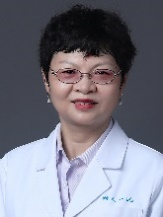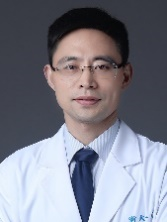Benyan Luo, M.D.
Director
Dr. Luo is skilled in clinical diagnosis and treatment of dementia, neuropsychology, cerebrovascular diseases, chronic disorders of consciousness, and other complex neurological conditions.

Background
The clinical training program in Neurology addresses the growing demand for specialized care amidst the rising incidence of neurological disorders, leveraging the latest medical advancements to equip trainees with comprehensive clinical skills and knowledge. This program emphasizes hands-on experience, interdisciplinary collaboration, and patient-centered care to ensure high-quality neurological healthcare delivery.
Purpose
To equip promising physicians with a solid foundation of knowledge, skills, and experience that allows independent high-quality, and compassionate care of people with neurological disorders.
Target group
The target group for the Neurology clinical training program includes medical students, residents, and fellows specializing or interested in Neurology, aiming to gain clinical expertise and advanced skills.
The Neurology Department of the First Affiliated Hospital, Zhejiang University School of Medicine, is a national advanced stroke center, a core advanced cognitive impairment diagnosis and treatment center, and a comprehensive epilepsy center. Currently, it is distributed across three campuses in Qingchun, Zhijiang, and Yuhang, with 113 specialty beds and a team of 47 doctors. The department boasts sub-specialties in cerebrovascular diseases, interventional neurology, cognitive dysfunction, epilepsy, Parkinson's disease, dystonia, neuroimmunology and central nervous system infections, various encephalopathies, neuromuscular diseases, ion channel diseases, headaches, vertigo, and neurogenetic diseases. It features a rich variety of diseases and a professional, well-structured team with a reasonable composition.
In neuro-intervention, the department ranks first in the province in four types of surgeries, including intracranial vascular stent implantation and chronic closure recanalization. In the field of epilepsy, it conducts intracranial electroencephalography (EEG) and precise surgical treatment for epilepsy. As a national core advanced cognitive impairment diagnosis and treatment center, the department is responsible for training and guiding 45 advanced cognitive centers and nearly 100 memory clinics in Zhejiang Province in cognitive disorders. In neuroimmunology, it was one of the first to perform immunoadsorption therapy and ranks among the top in the country in terms of the number of autoimmune encephalitis cases treated. In neuromuscular diseases, the department independently performs nerve and muscle biopsies to aid in precise treatment. After nearly 30 years of construction and development, the Neurology Department boasts strong overall strength, outstanding technical capabilities, and advanced medical equipment. It has an independent neuro-electrophysiology laboratory and neuropsychological assessment room, equipped with 5 electromyography machines such as Nicolet EDX, 14 video EEG systems including Natus EMU40 and Nicolet, 2 Natus 256-channel intracranial EEG systems, 3 polysomnography machines, and 2 transcranial magnetic stimulation devices, among other important clinical equipment.
The goal of our program is to prepare trainees to achieve excellence in the clinical care of patients with neurological disorders. We also aim to provide our advanced trainees a strong foundation in clinical investigation to launch them into successful careers in academic medicine.
The program provides a full-time, 2-week to 6-month training experience. In special circumstances, arrangements can be made for other lengths of training depending on your needs and interests.
• Fellows: Qualified applicants for the Neurological Fellowship must have completed a neurological residency program at an accredited institution.
• Residents: To be eligible for the neurological residency, you must have successfully completed a board-approved program in clinical medicine.
• Students:
1. Must be a final-year medical student when you are scheduled to participate in the rotation. This means all your required clerkship rotations are complete at the time of the clinical elective.
2. Medical School Approval - Letter of good standing from the dean’s office of your medical school indicating you are in the final year with your expected graduation date, in good academic standing and meet all requirements to complete an elective for academic credit.
Focus Areas & Subspecialties:
1. cerebrovascular disease
2. cognitive disease
3. epilepsy
4. Parkinson’s disease
5. dystonia
6. neuroimmunology and central nervous system infections
7. neuromuscular diseases
8. ion channel diseases
9. headache
10. vertigo
11. neurogenetic disease
Skills:
Diagnosis and treatment of common neurological disorders;
Cerebral angiography, intracranial and extracranial artery angioplasty, emergency endovascular revascularization for large vessel occlusion, as well as treatment for intracranial venous sinus thrombosis, intracranial venous sinus stenosis, and chronic occlusion recanalization.
Monday
1st Week: introduction & welcome, program overview and objectives, department introduction
Weekly: MDT conferences, complicated case study
Weekly: mentor one-on-one training:
Tuesday
Weekly: outpatient observation, academic lecture
Biweekly: research training:
Wednesday
Weekly: clinical rounds, case-based discussion, teaching rounds
Weekly: lectures
Thursday
Weekly: clinical rounds, case-based discussion, teaching rounds
Weekly: lectures
Friday
Weekly: journal club, clinical rounds, clinical skills training, special task training,
Last Week: wrap-up & reflection, participant presentations or discussion of key takeaways, feedback session
After each rotation, each faculty member evaluates each fellow according to core competencies of patient care, medical knowledge, practice-based learning and improvement, interpersonal and communication skills, professionalism, and system-based practice. Faculty members meet with fellows individually for verbal feedback and evaluation. Monthly, an aggregate evaluation of a fellow's clinical progress is conducted through a clinical competency faculty committee.

Director
Dr. Luo is skilled in clinical diagnosis and treatment of dementia, neuropsychology, cerebrovascular diseases, chronic disorders of consciousness, and other complex neurological conditions.

Vice-director
Dr. Liang specializes in the diagnosis and individualized treatment of central nervous system demyelinating diseases (including multiple sclerosis, neuromyelitis optica spectrum disorders, and MOG-associated encephalitis), acute cerebrovascular diseases, and adult neuronal intranuclear inclusion disease. He is also proficient in the application of novel neuroimmunotherapy techniques such as various novel biologics and immunoadsorption.

Vice-director
Dr. Peng specializes in the clinical diagnosis and treatment of neurodegenerative diseases such as Alzheimer's disease, Parkinson's disease, and motor neuron disease, as well as the treatment of post-stroke complications, dizziness, and sleep disorders.

Vice-director
Dr. Wang specializes in adult and pediatric epilepsy, autoimmune encephalitis, severe cerebral function monitoring, and rare and complex neurological diseases.
The program is free of charge.